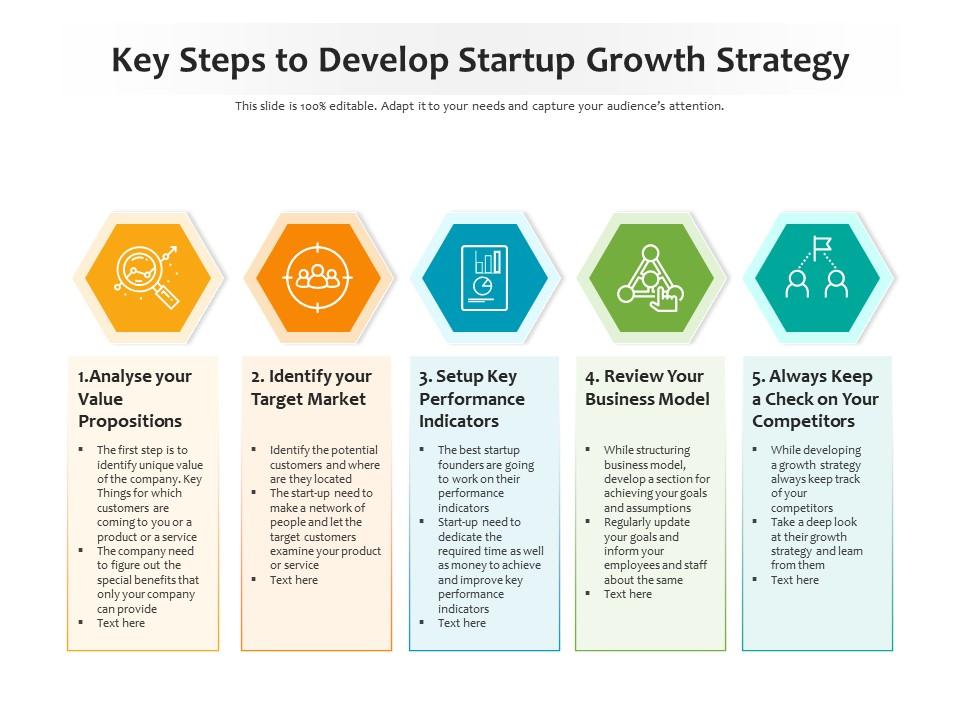Why Growth Marketing is Crucial for Startups
Growth marketing is a vital component of any startup’s success, playing a crucial role in driving user acquisition, revenue growth, and competitive advantage. By leveraging data-driven decision-making and experimentation, growth marketing enables startups to adapt quickly to changing market conditions and customer needs. Unlike traditional marketing approaches, which often focus on brand awareness and advertising, growth marketing is centered on measurable, scalable, and sustainable growth.
For startups, growth marketing offers a unique opportunity to accelerate expansion and gain a competitive edge. By applying growth marketing strategies, startups can increase their customer base, enhance customer engagement, and ultimately drive revenue growth. Moreover, growth marketing allows startups to test and refine their marketing efforts in real-time, ensuring that resources are allocated efficiently and effectively.
One of the primary benefits of growth marketing for startups is its ability to drive user acquisition. By leveraging channels such as social media, content marketing, and paid advertising, startups can reach and engage with their target audience, driving conversions and revenue growth. Additionally, growth marketing enables startups to optimize their marketing efforts for maximum ROI, ensuring that every dollar spent generates a measurable return.
Another key advantage of growth marketing for startups is its focus on data-driven decision-making. By analyzing key metrics such as customer acquisition cost, lifetime value, and retention rate, startups can gain valuable insights into their marketing efforts and make data-driven decisions to optimize their strategies. This approach enables startups to refine their marketing efforts in real-time, ensuring that they are always optimized for maximum growth and ROI.
Overall, growth marketing is a critical component of any startup’s success, offering a powerful framework for driving user acquisition, revenue growth, and competitive advantage. By leveraging data-driven decision-making, experimentation, and scalable marketing strategies, startups can accelerate their expansion and achieve long-term success.
How to Develop a Winning Growth Marketing Mindset
Developing a growth marketing mindset is crucial for startups seeking to drive rapid expansion and achieve long-term success. This mindset is centered on experimentation, data-driven decision-making, and continuous learning, enabling startups to adapt quickly to changing market conditions and customer needs.
To cultivate a growth marketing mindset within a startup team, it’s essential to foster a culture of experimentation and learning. This involves encouraging team members to test new ideas, analyze results, and refine their approaches based on data-driven insights. By embracing a culture of experimentation, startups can identify and capitalize on new growth opportunities, driving user acquisition and revenue growth.
Data-driven decision-making is another critical component of a growth marketing mindset. By leveraging data analytics tools and techniques, startups can gain valuable insights into their marketing efforts, customer behavior, and market trends. This enables them to make informed decisions, optimize their marketing strategies, and drive maximum ROI.
Continuous learning is also vital for developing a growth marketing mindset. Startups must stay up-to-date with the latest growth marketing trends, tools, and techniques, ensuring they remain competitive in a rapidly evolving market. This involves investing in ongoing training and education, attending industry events, and participating in online communities and forums.
To develop a winning growth marketing mindset, startups should also focus on building a culture of collaboration and communication. This involves breaking down silos between teams, encouraging open communication, and fostering a sense of shared ownership and responsibility. By working together towards a common goal, startups can drive growth, innovation, and success.
Additionally, startups should prioritize agility and adaptability when developing a growth marketing mindset. This involves being willing to pivot quickly in response to changing market conditions, customer needs, or unexpected challenges. By embracing agility and adaptability, startups can stay ahead of the competition, drive growth, and achieve long-term success.
By cultivating a growth marketing mindset, startups can unlock the full potential of their growth marketing strategies, driving rapid expansion, user acquisition, and revenue growth. By embracing experimentation, data-driven decision-making, continuous learning, collaboration, and agility, startups can achieve long-term success and establish themselves as leaders in their industry.
Leveraging Data-Driven Decision Making for Growth
Data analysis is a critical component of growth marketing, enabling startups to make informed decisions, optimize their marketing strategies, and drive maximum ROI. By leveraging data-driven decision making, startups can gain valuable insights into their marketing efforts, customer behavior, and market trends.
Key metrics such as customer acquisition cost (CAC), lifetime value (LTV), and retention rate are essential for measuring the effectiveness of growth marketing strategies. CAC measures the cost of acquiring a new customer, while LTV represents the total value of a customer over their lifetime. Retention rate, on the other hand, measures the percentage of customers retained over a specific period.
To collect and interpret data, startups can leverage a range of tools and techniques, including Google Analytics, Mixpanel, and Excel. These tools enable startups to track key metrics, analyze customer behavior, and identify areas for improvement. Additionally, startups can use data visualization techniques, such as charts and graphs, to communicate complex data insights to stakeholders.
Data-driven decision making is particularly important in growth marketing, where startups need to make rapid decisions to capitalize on new opportunities or respond to changing market conditions. By leveraging data analysis, startups can identify areas for improvement, optimize their marketing strategies, and drive maximum ROI.
For example, a startup may use data analysis to identify a high-performing marketing channel, such as Facebook Ads, and allocate more budget to that channel to drive further growth. Alternatively, a startup may use data analysis to identify a low-performing marketing channel, such as email marketing, and optimize their email marketing strategy to improve performance.
Moreover, data-driven decision making enables startups to measure the effectiveness of their growth marketing strategies and make adjustments accordingly. By tracking key metrics and analyzing customer behavior, startups can refine their marketing strategies, improve customer engagement, and drive revenue growth.
In addition to leveraging data analysis, startups can also use A/B testing to optimize their growth marketing strategies. A/B testing involves testing two or more versions of a marketing campaign to determine which version performs better. By using A/B testing, startups can identify the most effective marketing strategies and optimize their campaigns for maximum ROI.
Overall, data-driven decision making is a critical component of growth marketing, enabling startups to make informed decisions, optimize their marketing strategies, and drive maximum ROI. By leveraging data analysis and A/B testing, startups can refine their marketing strategies, improve customer engagement, and drive revenue growth.
Building a Growth Marketing Team: Essential Roles and Skills
Building a high-performing growth marketing team is crucial for startups seeking to drive rapid expansion and achieve long-term success. A well-structured growth marketing team should include a range of essential roles and skills, including growth hackers, data analysts, and content creators.
Growth hackers are responsible for developing and executing growth marketing strategies, leveraging channels such as social media, content marketing, and paid advertising to drive user acquisition and revenue growth. They should possess a deep understanding of growth marketing principles, as well as the ability to analyze data and optimize marketing campaigns for maximum ROI.
Data analysts play a critical role in growth marketing, providing insights and analysis to inform marketing decisions and optimize campaign performance. They should be skilled in data analysis tools such as Google Analytics, Mixpanel, and Excel, and possess a strong understanding of metrics such as customer acquisition cost, lifetime value, and retention rate.
Content creators are responsible for developing high-quality, engaging content that resonates with target audiences and drives user acquisition and revenue growth. They should possess a deep understanding of content marketing principles, as well as the ability to create compelling content across a range of formats, including blog posts, social media, and email marketing.
In addition to these essential roles, a growth marketing team should also include a range of supporting skills, including project management, UX design, and development. Project managers should be responsible for overseeing the execution of growth marketing campaigns, ensuring that they are delivered on time and within budget. UX designers should be responsible for developing user-centered design solutions that drive conversion and revenue growth. Developers should be responsible for building and maintaining the technical infrastructure required to support growth marketing campaigns.
To build a high-performing growth marketing team, startups should focus on hiring talented individuals with a range of skills and experience. They should also prioritize ongoing training and development, ensuring that team members possess the skills and knowledge required to stay up-to-date with the latest growth marketing trends and best practices.
When hiring for a growth marketing team, startups should look for individuals with a passion for growth marketing, as well as a proven track record of success in driving user acquisition and revenue growth. They should also prioritize cultural fit, ensuring that new hires align with the company’s values and mission.
By building a high-performing growth marketing team, startups can drive rapid expansion, achieve long-term success, and establish themselves as leaders in their industry. By prioritizing the right roles and skills, and focusing on ongoing training and development, startups can unlock the full potential of their growth marketing strategies and achieve remarkable results.
Effective Growth Marketing Channels for Startups
When it comes to growth marketing, startups have a wide range of channels to choose from, each with its own unique strengths and weaknesses. In this article, we’ll explore the most effective growth marketing channels for startups, including social media, content marketing, email marketing, and paid advertising.
Social media is a powerful growth marketing channel for startups, offering a range of platforms to reach and engage with target audiences. Facebook, Twitter, LinkedIn, and Instagram are all popular options, each with its own unique features and user demographics. By creating and sharing high-quality content, startups can build brand awareness, drive website traffic, and generate leads.
Content marketing is another effective growth marketing channel for startups, involving the creation and distribution of valuable, relevant, and consistent content to attract and retain a clearly defined audience. This can include blog posts, videos, podcasts, and more. By creating high-quality content, startups can establish themselves as thought leaders in their industry, build trust with their target audience, and drive conversions.
Email marketing is a highly effective growth marketing channel for startups, offering a range of benefits, including high conversion rates, low costs, and ease of use. By building an email list and creating high-quality content, startups can nurture leads, drive conversions, and build long-term relationships with their target audience.
Paid advertising is another effective growth marketing channel for startups, offering a range of options, including Google Ads, Facebook Ads, and LinkedIn Ads. By creating high-quality ad copy and targeting the right audience, startups can drive website traffic, generate leads, and drive conversions.
When choosing a growth marketing channel, startups should consider their target audience, budget, and goals. By selecting the right channel and creating high-quality content, startups can drive rapid expansion, achieve long-term success, and establish themselves as leaders in their industry.
For example, a startup might use social media to build brand awareness and drive website traffic, while using email marketing to nurture leads and drive conversions. Alternatively, a startup might use paid advertising to drive website traffic and generate leads, while using content marketing to establish themselves as thought leaders in their industry.
By leveraging multiple growth marketing channels, startups can create a comprehensive growth marketing strategy that drives rapid expansion and achieves long-term success. By selecting the right channels and creating high-quality content, startups can reach and engage with their target audience, drive conversions, and build long-term relationships.
Ultimately, the key to success with growth marketing is to be flexible, adaptable, and willing to experiment. By trying new channels, testing new content, and analyzing results, startups can refine their growth marketing strategy and achieve remarkable results.
Optimizing Your Website for Growth: UX and Conversion Rate Optimization
A well-designed website is crucial for startup growth marketing strategies, as it serves as the central hub for all marketing efforts. A website that is optimized for user experience (UX) and conversion rate optimization (CRO) can significantly improve the effectiveness of growth marketing campaigns, driving more conversions and revenue.
UX is a critical aspect of website optimization, as it directly impacts the user’s experience and perception of the brand. A website with good UX should be easy to navigate, visually appealing, and provide a clear and concise message. This can be achieved by conducting user research, creating wireframes and prototypes, and testing the website with real users.
CRO is another essential aspect of website optimization, as it focuses on converting website visitors into customers. This can be achieved by optimizing the website’s design, layout, and content to persuade visitors to take a specific action, such as filling out a form or making a purchase. A/B testing and multivariate testing are effective methods for optimizing CRO, as they allow marketers to test different variations of the website and measure the impact on conversions.
Techniques for improving website design, navigation, and CTAs include simplifying the website’s layout, using clear and concise language, and making CTAs prominent and visible. Additionally, using social proof, such as customer testimonials and reviews, can help build trust and credibility with website visitors.
For example, a startup might use A/B testing to optimize the color and placement of their CTAs, resulting in a significant increase in conversions. Alternatively, a startup might use user research to identify areas of the website that are causing friction, and make changes to improve the overall UX.
By optimizing their website for UX and CRO, startups can improve the effectiveness of their growth marketing campaigns, drive more conversions and revenue, and establish a strong online presence. By prioritizing UX and CRO, startups can create a website that is both visually appealing and highly effective at driving business results.
Furthermore, a well-designed website can also help to build trust and credibility with website visitors, which is essential for establishing a strong brand reputation. By investing in UX and CRO, startups can create a website that is both functional and visually appealing, driving business results and establishing a strong online presence.
Ultimately, the key to success with UX and CRO is to continually test and optimize the website, making data-driven decisions to improve the user experience and drive conversions. By prioritizing UX and CRO, startups can create a website that is both effective and efficient, driving business results and establishing a strong online presence.
Measuring and Optimizing Growth Marketing Performance
Measuring and optimizing growth marketing performance is crucial for startups seeking to drive rapid expansion and achieve long-term success. By setting clear goals, tracking key metrics, and conducting A/B testing, startups can refine their growth marketing strategies and achieve remarkable results.
Setting clear goals is the first step in measuring and optimizing growth marketing performance. This involves defining specific, measurable, achievable, relevant, and time-bound (SMART) objectives, such as increasing website traffic, generating leads, or driving conversions. By setting clear goals, startups can focus their growth marketing efforts and measure progress towards achieving their objectives.
Tracking key metrics is also essential for measuring and optimizing growth marketing performance. This involves monitoring metrics such as website traffic, engagement, conversion rates, and customer acquisition costs. By tracking these metrics, startups can gain valuable insights into their growth marketing efforts and identify areas for improvement.
Conducting A/B testing is another effective way to optimize growth marketing performance. This involves testing different variations of a growth marketing campaign, such as email subject lines, CTAs, or landing pages, to determine which version performs better. By conducting A/B testing, startups can refine their growth marketing strategies and achieve higher conversion rates.
Tools and techniques for analyzing and improving growth marketing campaigns include Google Analytics, Mixpanel, and Excel. These tools enable startups to track key metrics, analyze customer behavior, and identify areas for improvement. Additionally, startups can use data visualization techniques, such as charts and graphs, to communicate complex data insights to stakeholders.
For example, a startup might use A/B testing to optimize their email marketing campaigns, resulting in a significant increase in open rates and conversions. Alternatively, a startup might use Google Analytics to track website traffic and identify areas for improvement, such as optimizing their website’s loading speed or improving their content’s relevance.
By measuring and optimizing growth marketing performance, startups can refine their growth marketing strategies and achieve remarkable results. By setting clear goals, tracking key metrics, and conducting A/B testing, startups can drive rapid expansion, achieve long-term success, and establish themselves as leaders in their industry.
Ultimately, the key to success with growth marketing is to continually measure and optimize performance, making data-driven decisions to improve growth marketing efforts. By prioritizing measurement and optimization, startups can create a growth marketing strategy that is both effective and efficient, driving business results and establishing a strong online presence.
Scaling Growth Marketing Efforts for Long-Term Success
Scaling growth marketing efforts is crucial for startups seeking to achieve long-term success and establish themselves as leaders in their industry. By expanding teams, increasing budgets, and maintaining momentum, startups can drive rapid expansion and achieve remarkable results.
Expanding teams is a critical aspect of scaling growth marketing efforts. This involves hiring additional team members, including growth hackers, data analysts, and content creators, to support the growth marketing strategy. By expanding teams, startups can increase their capacity to execute growth marketing campaigns and drive more conversions.
Increasing budgets is another essential aspect of scaling growth marketing efforts. This involves allocating more resources to support growth marketing campaigns, including advertising, content creation, and team expansion. By increasing budgets, startups can drive more traffic, generate more leads, and achieve higher conversion rates.
Maintaining momentum is also crucial for scaling growth marketing efforts. This involves continually measuring and optimizing growth marketing performance, making data-driven decisions to improve growth marketing efforts, and staying up-to-date with the latest growth marketing trends and best practices. By maintaining momentum, startups can drive rapid expansion and achieve long-term success.
Common challenges when scaling growth marketing efforts include managing team growth, maintaining culture, and ensuring consistent messaging. To overcome these challenges, startups should prioritize clear communication, establish a strong company culture, and ensure that all team members are aligned with the growth marketing strategy.
Solutions for scaling growth marketing initiatives include leveraging technology, such as marketing automation tools, to streamline growth marketing efforts and increase efficiency. Additionally, startups can use data analytics to measure and optimize growth marketing performance, making data-driven decisions to improve growth marketing efforts.
For example, a startup might use marketing automation tools to streamline their email marketing campaigns, resulting in a significant increase in open rates and conversions. Alternatively, a startup might use data analytics to measure and optimize their paid advertising campaigns, resulting in a higher return on investment (ROI).
By scaling growth marketing efforts, startups can drive rapid expansion, achieve long-term success, and establish themselves as leaders in their industry. By expanding teams, increasing budgets, and maintaining momentum, startups can drive more conversions, generate more revenue, and achieve remarkable results.
Ultimately, the key to success with scaling growth marketing efforts is to continually measure and optimize performance, making data-driven decisions to improve growth marketing efforts. By prioritizing scalability, startups can create a growth marketing strategy that is both effective and efficient, driving business results and establishing a strong online presence.






